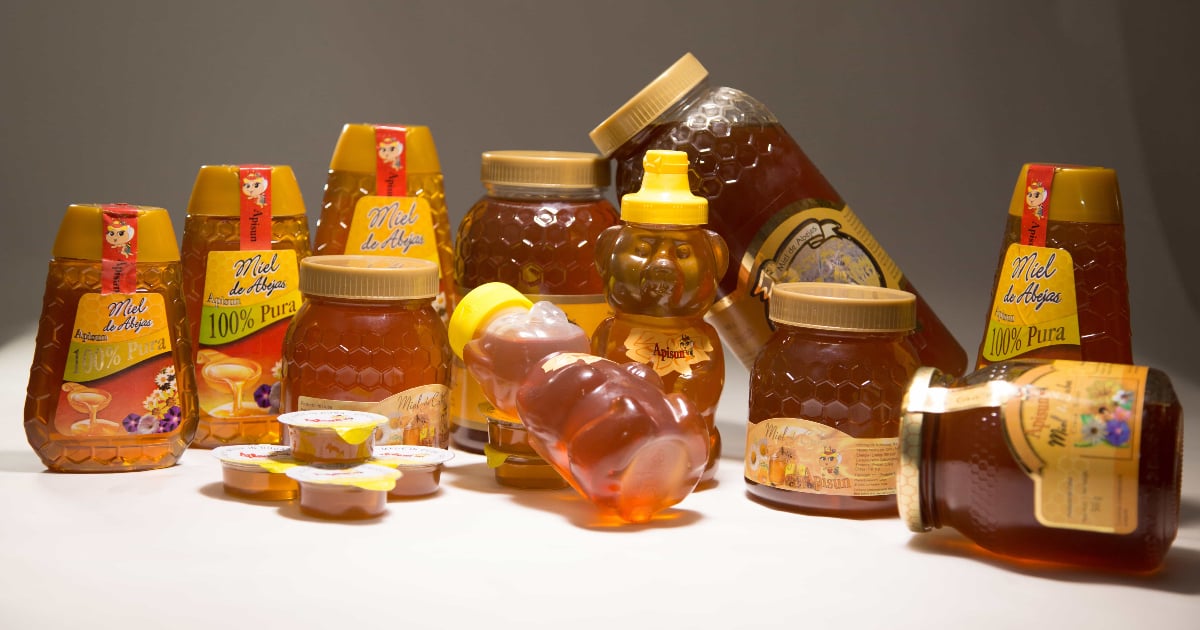
In the midst of a severe food crisis, the Cuban government continues to prioritize the export of honey, allocating 90% of the annual production to international markets.
Bee honey, traditionally one of the most valuable products in the Cuban agricultural sector, has been placed among the eight priority areas of the Comprehensive Strategy for the Export of Goods and Services for the period 2019-2030.
Despite the problems facing production, such as the scarcity of inputs and fuel, as well as the devastating effects of drought and wildfires, beekeeping on the island has remained strong.
According to data from the National Statistics Office (ONEI) cited by Granma, in 2022 Cuba managed to collect 9,200 tons of honey, although this volume was slightly lower than the previous year. In comparison, in 1962, the country reached a record of over 10,000 tons of honey produced.
The export of honey generates significant income for the state-owned Cuban Beekeeping Company (APICUBA), which belongs to the Agroforestry Business Group. Its general director, Lázaro Bruno García Castro, and the company's foreign trade director, Ramón Hurtado Delgado, know the volume of business they handle. Cubans do not.
In 2018, the export of Cuban honey to European countries such as Germany, France, and Spain generated around 18 million dollars. At that time, it was estimated that the average export price of Cuban honey was 2,655 dollars per ton, with organic honey standing out particularly, holding great prestige in international markets due to its high quality and characteristic flavor.
Taking these reference values into account (and without considering market fluctuations, the impact of global inflation, and other factors), it would be feasible for the export of 90% of the honey produced in Cuba to result in more than 22 million dollars for the state-owned company's coffers. How much of this amount ends up in the hands of the beekeepers?
Again, using those relative values as a reference, honey production in Cuba would be enough to sell one kilogram of honey per year to each Cuban, at a price lower than three dollars. Why doesn’t the Cuban regime do this? One would have to ask the directors of APICUBA, or the ghostly Minister of Economy, Joaquín Alonso Vázquez.
The emphasis on honey exportation has generated internal criticism due to the severe food shortages affecting the Cuban population. While the government celebrates record production and export figures, many families in Cuba cannot access basic products like honey. This situation worsens in a context where inflation and widespread shortages are suffocating Cubans.
Granma, one of the provinces most affected by the crisis, has become one of the largest honey producers in the country. In March 2022, beekeepers in this region achieved a monthly collection record of 220 tons, demonstrating the importance that the government continues to assign to this activity. However, the impact on the population remains limited, as 90% of the production is destined for the foreign market.
The contrast between the massive export of honey and the internal food crisis is a testament to the contradictions of the Cuban economy. While the country positions itself as a competitive exporter of honey, Cubans are increasingly restricted in their access to basic food items. This situation raises serious questions about the government's priorities, which continues to focus on obtaining foreign currency through exports, while the population suffers from a lack of essential products.
At the end of December 2023, the Cuban regime assured that rum, honey, and coffee from Cuba captivated consumers in China, which it accessed through an online platform.
In Cuban markets, there is no coffee or honey available for the population, but the regime invests time, money, and resources in promoting the marketing of its products on the other side of the planet. Meanwhile, the people of Cuba go days without finding coffee, and without honey or sugar to sweeten life.
What do you think?
COMMENTFiled under: